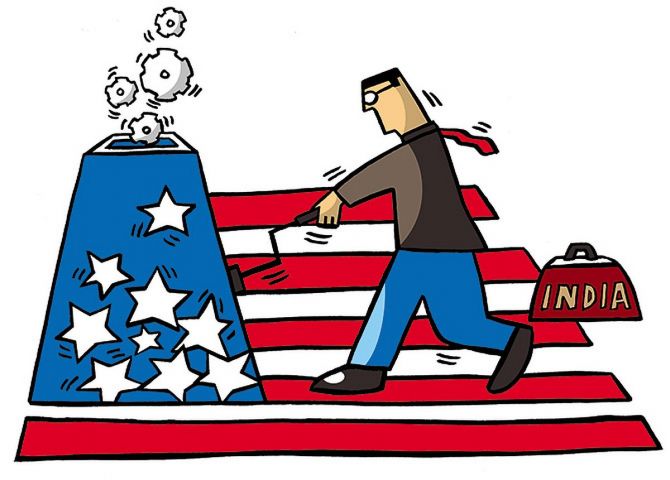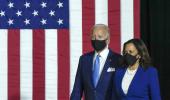The United States on Thursday announced that it will modify the selection process for H-1B visa, giving priority to salary and skills instead of the current lottery procedures.

The final rule to be published in the federal register on January 8, officials said, is aimed to protect the economic interests of US workers and better ensure the most highly skilled foreign workers benefit from the temporary employment programme.
The H-1B visa is a non-immigrant visa that allows US companies to employ foreign workers in specialty occupations that require theoretical or technical expertise.
The technology companies depend on it to hire tens of thousands of employees each year from countries like India and China.
Modifying the H-1B cap selection process will incentivise employers to offer higher salaries, and/or petition for higher-skilled positions, and establish a more certain path for businesses to achieve personnel needs and remain globally competitive, said US Citizenship and Immigration Services.
The final rule will be effective 60 days after its publication in the Federal Register.
The next H-1B visa filing season is slated to start on April 1.
“The H-1B temporary visa programme has been exploited and abused by employers primarily seeking to fill entry-level positions and reduce overall business costs,” said USCIS Deputy Director for Policy Joseph Edlow.
“The current H-1B random selection process makes it difficult for businesses to plan their hiring, fails to leverage the programme to compete for the best and brightest international workforce, and has predominantly resulted in the annual influx of foreign labour placed in low-wage positions at the expense of US workers,” he said.
This effort will only affect H-1B registrations (or petitions, if the registration process is suspended) submitted by prospective petitioners seeking to file H-1B cap-subject petitions.
It will be implemented for both the H-1B regular cap and the H-1B advanced degree exemption, but it will not change the order of selection between the two as established by the H-1B registration final rule, USCIS said.
The Department of Homeland Security had previously published a notice of proposed rulemaking on November 2, 2020.
It carefully considered the public comments received before deciding to publish the proposed regulations as a final rule, USCIS said.
According to the final rule, a version of which was released by Department of Homeland Security, Instead, a registration system that faithfully implements the Immigration and Nationality Act (INA) while prioritising registrations based on wage level within each cap will incentivize H-1B employers to offer higher wages, or to petition for positions requiring higher skills and higher-skilled aliens that are commensurate with higher wage levels, to increase the likelihood of selection and eligibility to file an H-1B cap-subject petition.
Moreover, it will maximize H-1B cap allocations, so that they more likely will go to the best and brightest workers; and it will disincentivise abuse of the H-1B programme to fill relatively lower-paid, lower-skilled positions, which is a significant problem under the present selection system, it said.
“While administering a random lottery system is reasonable, it is inconsiderate of Congress's statutory purposes for the H-1B program and its administration,” said the final rule.
The changes in this final rule will apply to all registrations, including those for the advanced degree exemption, submitted on or after the effective date of the final rule.
As per Congressional-mandated cap, USCIS in one year can issue a maximum of 65,000 H-1B visas.
It can also issue another 20,000 H-1B visas to those foreign students who have completed higher studies from a US university in STEM subjects.
During the public notice period, the department said, several commentators expressed support for the rule and the need to stop visa fraud, abuse, and flooding of petitions by certain staffing or consulting companies.
One commenter said the proposed rule would disincentivise companies from abusing the H-1B programme and harming US workers.
Other commentators said the proposed rule would decrease potential visa abuse by employers and make sure all workers were paid according to their skill-set as employers no longer would be able to lower labour expenses by hiring foreign workers.
Another said that the proposed rule would have a positive impact on US employees and college educated US citizens who take out loans for their education by making it harder for technology companies to discriminate against US citizens; US workers are being laid off in large numbers because corporations are outsourcing for profits; and the proposed rule is necessary because Indian corporations are acquiring US jobs, it said.











 © 2025
© 2025